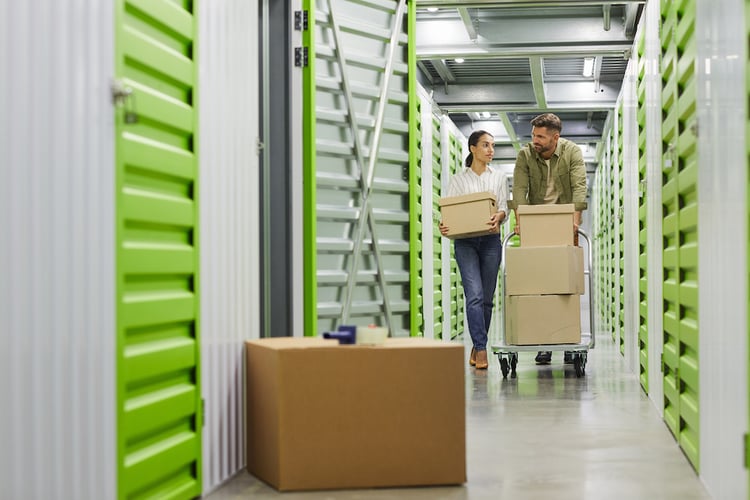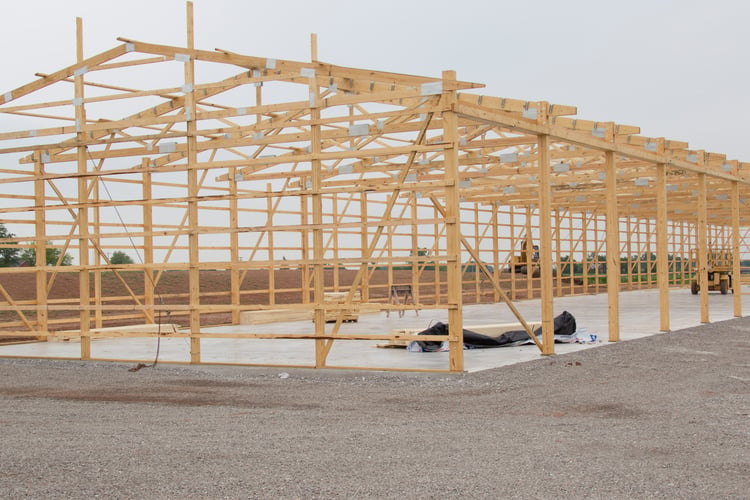Self storage investing has grown in popularity over the years, with more and more individuals and companies looking to invest in this lucrative market. Whether you are considering buying or building a self storage facility, or already own one and want to learn how to manage and market it effectively, this guide will provide you with all the necessary information.
Introduction to Self Storage Investing
Self storage investing involves owning or operating a facility where individuals and businesses can rent storage units for their belongings. These units can range in size from small lockers to large rooms and are typically rented every month. Self storage investing has grown in popularity due to:
- High demand: With smaller living spaces and more people moving frequently, the need for storage has increased. Self storage facilities offer a convenient and affordable solution for individuals and businesses to store their belongings.
- Steady income: Unlike other types of real estate investments that may have seasonal or fluctuating rental incomes, self storage facilities tend to have a steady and reliable stream of income.
- Low operating costs: Once the initial investment is made, the ongoing operating costs for a self storage facility are relatively low. This can result in higher profit margins compared to other types of real estate investments.
Now that we understand what self storage investing is and why it has gained popularity, let's explore the different aspects of this type of investment.

Buying or Building a Self Storage Facility
The first step in self storage investing is acquiring a facility. There are two main options: buying an existing facility or building a new one. Each option has its pros and cons, so it's important to carefully consider your goals and resources before making a decision.
Buying an Existing Facility
Buying an existing self storage facility can be a quicker and more cost-effective option compared to building one from scratch. However, it's important to thoroughly research the market and assess the potential for growth before making a purchase. Here are some factors to consider:
- Location: Look for facilities in areas with high demand for storage units, such as urban or suburban areas. Also, consider the competition in the area (established and under development) and how your facility can differentiate itself.
- Facility condition: Inspect the facility thoroughly to ensure it is well-maintained and does not require major repairs or renovations.
- Financials: Review the facility's financials, including its revenue, expenses, and potential for growth. It's also important to factor in any outstanding loans or debts that come with the facility.

Self Storage Conversions
For some investors, an innovative and potentially cost-effective approach to entering the self storage market is through conversions. This involves transforming an existing building, such as a warehouse, office building, or even a large retail space, into a self storage facility. This strategy can often be quicker and more affordable than constructing a new building, and it can also provide an opportunity to utilize structures in prime locations that might otherwise be overlooked.
Conversions can present unique challenges, however, including navigating zoning regulations, assessing the suitability of the building for storage purposes, and making necessary structural modifications. Conducting a thorough feasibility study is vital to ensure the chosen property is a viable candidate for conversion. Despite these complexities, with careful planning and execution, self storage conversions can be a lucrative avenue for those interested in self storage investing.
Building a New Facility
Building a new self storage facility allows for more control over the design and layout of the facility, as well as potential cost savings in the long run. However, it also requires a larger initial investment and can take longer to generate income. Here are some considerations when building a new facility:
- Location: Similar to buying an existing facility, location is key. Look for areas with high demand and consider factors such as accessibility, visibility, and surrounding competition.
- Design: Work with a professional architect or self storage consultant to design a facility that maximizes the use of space and meets the needs of potential renters.
- Costs: Building a new facility can be costly, so it's important to carefully budget and consider all expenses, including land acquisition, construction, permits, and marketing.

How To Start Your Self Storage Business
Now that you have your self storage property, the next step is to set up your business.
Obtaining Permits and Licenses
Before opening your self storage facility, you'll need to obtain the necessary permits and licenses from local authorities. These may include building permits, zoning approvals, business licenses, and fire safety certificates. It's important to research and comply with all regulations and codes in your area.
Setting Rental Rates
Setting rental rates for your storage units can be a balancing act. You want to ensure they are competitive enough to attract renters, but also high enough to cover your expenses and generate profit. Research the market rates in your area and consider factors such as location, unit size, and amenities when setting your rates.
Hiring Staff
Managing a self storage facility can be a lot of work, so it's important to have a team of reliable staff to help you. This may include property managers, maintenance workers, and administrative staff. Consider the responsibilities involved in managing your facility and hire accordingly.
Managing a Self Storage Facility
Once you have acquired a self storage facility, it's important to effectively manage it in order to maximize profitability. Here are some tips for effective management:
- Regular maintenance: Keep the facility clean, well-maintained, and secure to attract and retain renters.
- Customer service: Provide excellent customer service to renters, including timely responses to inquiries and assistance with any issues or concerns.
- Self storage software solutions: Consider investing in self storage management software to streamline processes such as rental payments, unit availability, and customer communication.
- Self storage pest control: Ensure the facility is regularly inspected and treated for pests to maintain a clean and safe environment for renters.
- Creating contracts: Have clear and detailed rental contracts in place to protect both the facility and renters.

Marketing Your Self Storage Facility
Having a solid marketing plan is crucial for attracting renters to your self storage facility. Here are some effective strategies:
- Online presence: Create a professional website and utilize social media platforms to showcase your facility, its amenities, and rental rates.
- Local advertising: Utilize local newspapers, community boards, and flyers to target potential renters in your area.
- Referral programs: Offer incentives for current renters to refer their friends and family to your facility.
- Partnerships: Partner with local businesses or organizations, such as real estate agents or moving companies, to cross-promote your services.

Get Help from a Storelocal Consultant
Self storage investing can be a great option for those looking for a steady and potentially high-return investment with relatively low operating costs. With careful research, planning, and effective management, self storage facilities can provide a reliable source of income for years to come.
At Storelocal, our team of self storage consultants is here to help. We've worked with owners and operators who manage self storage facilities of all sizes. Contact us today to see how our expertise can help your self storage business thrive.
